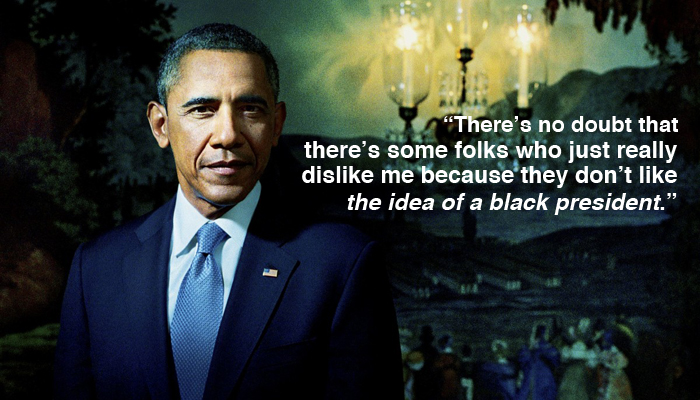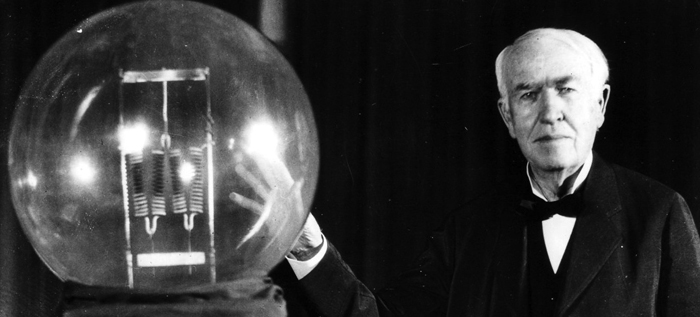Psychologists call it “confirmation bias”, which is the tendency to search for, or otherwise interpret information in a way that confirms what you already believe, regardless of the facts. You may call it “rationalizing”. Others may call it “missing the forest for the trees”. I call it “denial”, and as the old saying goes, denial is not just a river in Egypt.
You see, almost 50% of Americans say the mid-term election results were a vote against the President’s policies. And almost every poll shows it too. At least 3 out of 4 of Americans believe the country is headed in the wrong direction, not to mention that the President’s approval rating with the American people – and within the black community, as well – is at the lowest level of his presidency. In fact, black voter participation this year increased from the last midterm election, and yet Democrats now hold less elected offices, at both the federal and state level, than at any time since the 1920s.
Considering that the Obama administration has lost control of both the House of Representatives and the U.S. Senate, Democrats are turning to a familiar, but worn out explanation: It’s not the President’s policies being rejected by the voters. It’s that white people don’t like having a black man in the White House.
Really? Yes, really. And be prepared to hear a lot of that in the next couple of years whenever Republicans stand in the way of the President’s agenda or oppose his executive orders, from immigration to gun control.
Nevermind that it was white voters, in a largely white nation, who elected a black man to its highest office in the land. In fact, it was Iowa – which is 95% white – that made him into a contender for 2008. Still, he stirs the pot by telling reporters earlier this year that, “There’s no doubt that there’s some folks who just really dislike me because they don’t like the idea of a black president.”
Seriously? Nevermind that folks might not really like the idea that their President told them, “If you like your health care plan, you can keep your healthcare plan,” while, almost 100,000 Louisianans have had their health insurance policies cancelled this year. Nevermind that you deliberately allowed American guns to make their way illegally into Mexico, where they were used by drug cartels to kill dozens – including a U.S. Border Patrol Agent. Nevermind that you promised Americans an administration filled with “transparency and the rule of law”, even though you issue executive order after executive order, thereby escaping the glare of the legislative process, the need to debate the issues, or to humbly ask for support from the 319 million Americans in this country.
Race is just about the only song that the Democrats have left to sing now, but it will be completely out of key, though. You only need to look across the country to understand why. In Utah, they just elected young Republican Mia Love to the U.S. House of Representatives (she also happens to be black), and in South Carolina, Republican Tim Scott was elected as the first black U.S. Senator since reconstruction, and is the only black have also been elected to the U.S. House of Representatives.
Then here at home, there’s State Senator Elbert Guillory from Opelousas. He also happens to be black, and he switched to the Republican Party, after years of seeing the continued plight of blacks in America, who traditionally vote Democrat every time, without any measurable improvement to their communities. Or how about Rev. C.L. Bryant, former NAACP leader and host of America on the Edge radio show here in Shreveport, who says that there is no reason for blacks or Latinos to support this president, when you look at the economic numbers.
And he’s right. Since 2008, black poverty is up, and unemployment is down. 40% of black males are incarcerated, and 72% of black children are still being born to unmarried mothers. There are fewer blacks participating in the labor force and the unemployment rate among blacks is more than double than it is in among whites.
This is, in part, why black Republicans are being elected to so many statehouses, city halls, and to Congress. People are voting for these black Republican candidates because of what they believe, not because of the color of their skin. Go ahead Democrats, sing the race song, but the rest of America is humming a different tune these days.
Mary Landrieu, and Democrats everywhere, can rationalize both hers and the President’s diminishing popularity with the voters by saying that “(t)he South has not always been the friendliest place for African-Americans,” but the truth of the matter is that the South is no longer the friendliest place for empty suit politicians that leave any communities – black, white, or otherwise – with little more than empty hands.
Democrats have paddled minority communities up this river of denial one too many times. And the problem now for Democrats, more than ever before, is that an increasing number of folks in these communities are simply tired of being taken for a ride.







